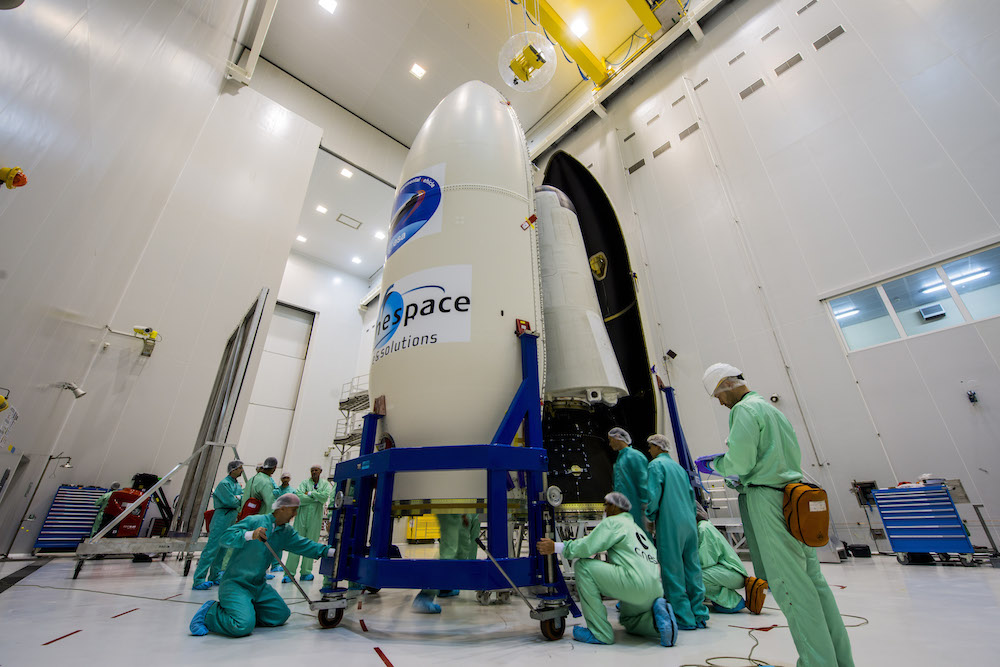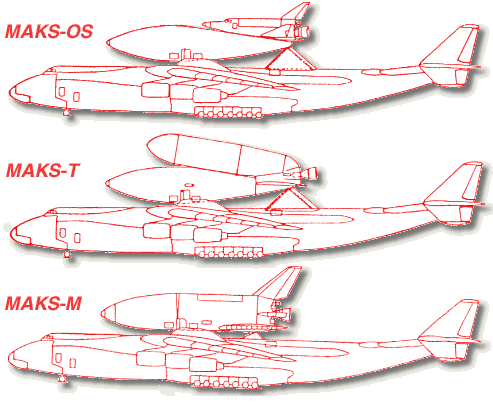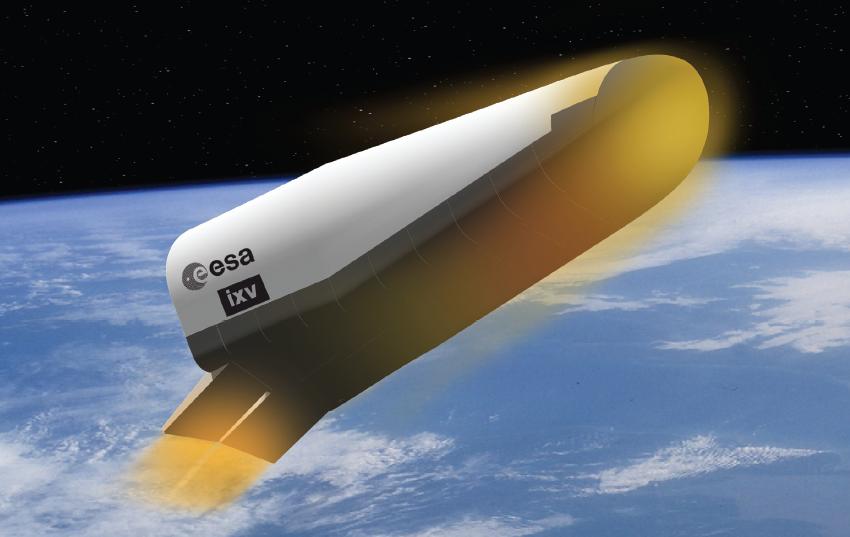New Mars Forums
You are not logged in.
- Topics: Active | Unanswered
Announcement
#1 2015-01-24 20:58:52
- SpaceNut
- Administrator
- From: New Hampshire
- Registered: 2004-07-22
- Posts: 30,419
Space planes -Sierra Nevada and ESA
I figured it was time to create the topic for the space planes that are still being worked on as part of the COTS program and the new one from ESA.
Europe’s IVX spaceplane on a trajectory for February launch
The launch – atop a Vega rocket – is set for February 11, following a decision to alter the launch trajectory due to safety concerns. The IXV is classed as a pathfinder, potentially leading to affordable reusable vehicles capable of operating modular payloads for multiple applications in various orbits, before returning to Earth for a touchdown on a conventional runway.

The dream chaser is very simular and would fit the same bill for a taxi to orbit.
http://www.sncspace.com/ss_space_exploration.php
Dream Chaser spacecraft - a winged, lifting-body spacecraft that provides a flexible, credible, affordable solution for International Space Station (ISS) crew transportation and a viable path to the future of human space flight operations for NASA, international and commercial space applications.

Offline
Like button can go here
#2 2015-01-24 23:11:13
- Impaler
- Member
- From: South Hill, Virginia
- Registered: 2012-05-14
- Posts: 286
Re: Space planes -Sierra Nevada and ESA
I hope SN can continue their vehicle but looking out to SpaceX/Boeing is probably going to be a death-sentence in the long-run. I think they have shown that their vehicle concept is technologically viable though so the idea is likely to be resurrected at some point even if they don't manage it.
The ESA vehicle though, can you call it a plane when it has no wings? I'd call it a side-entry bi-conic capsule, which again is a very viable thing.
Offline
Like button can go here
#3 2015-02-01 19:56:46
- SpaceNut
- Administrator
- From: New Hampshire
- Registered: 2004-07-22
- Posts: 30,419
Re: Space planes -Sierra Nevada and ESA
Europe’s re-entry demonstrator mated to Vega rocket at a height of 98 feet.

Launch crews in French Guiana have mounted an innovative European space plane on top of a solid-fueled Vega launcher for a Feb. 11 suborbital test flight. The two-hour launch window opens at 1300 GMT (8 a.m. EST; 10 a.m. local time).
The European Space Agency’s Intermediate Experimental Vehicle was shrouded inside the Vega rocket’s 8.5-foot (2.6-meter) diameter payload fairing when it rolled out of a processing facility at the Guiana Space Center on a convoy to the Vega launch pad.
The IXV mission will last 100 minutes after the Vega launcher sends the 2,000-kilogram (4,409-pound) space plane on a suborbital path around the world, reaching a top speed of 7.5 kilometers per second, or nearly 16,800 mph, and a peak altitude of 420 kilometers, or 261 miles.
The test flight could help European efforts to return samples from other worlds, develop satellite servicing and disposal systems, and craft reusable rocket stages, according to ESA.
Offline
Like button can go here
#4 2015-02-03 09:34:19
- Quaoar
- Member
- Registered: 2013-12-13
- Posts: 665
Re: Space planes -Sierra Nevada and ESA
Esa IXV has not wing and it's a pure lifting body: it is correct to call it spaceplane or it has to be called something like lifting body entry vehicle?
Offline
Like button can go here
#5 2015-02-03 19:17:03
- GW Johnson
- Member
- From: McGregor, Texas USA
- Registered: 2011-12-04
- Posts: 6,137
- Website
Re: Space planes -Sierra Nevada and ESA
I guess in the sense that if it develops lift at all, you could call it a "space plane", wings or not. Most lifting bodies have terribly-poor lift characteristics once subsonic, though. That really needs real wings.
GW
GW Johnson
McGregor, Texas
"There is nothing as expensive as a dead crew, especially one dead from a bad management decision"
Offline
Like button can go here
#6 2015-02-04 11:51:13
- Quaoar
- Member
- Registered: 2013-12-13
- Posts: 665
Re: Space planes -Sierra Nevada and ESA
MAKS was also very interesting it would be propelled by RD-701 LOX-RP1-LH2 tripropellant rocket: a 300 atmosphere rocket that changing mixture ratio with altitude.
Offline
Like button can go here
#7 2015-02-04 16:20:32
- RobertDyck
- Moderator
- From: Winnipeg, Canada
- Registered: 2002-08-20
- Posts: 8,378
- Website
Re: Space planes -Sierra Nevada and ESA
Website of the manufacturer, Molniya: MAKS
It was an interesting craft. 3 variants: MAKS-OS was a medium shuttle with expendable external tank, cockpit for 2 astronauts, plus cargo bay to carry 8.3 metric tonnes to 200km orbit @ 51° inclination. MAKS-T had an expendable cargo pod with expendable engines, and separate expendable external tank, able to lift 18 tonnes to the same orbit. Or MAKS-M was an unmanned shuttle with tank contained within the orbiter, so nothing expendable. It was able to lift 5.5 metric tonnes to the same orbit. All launched from the back of an AN-225 aircraft, so could launch from any airport that could service that aircraft. All used a pair of RD-701 engines that would burn all three propellants RP-1/LH2/LOX for boost phase, then the same engines would transition to bipropellant LH2/LOX for upper trajectory.
Offline
Like button can go here
#8 2015-02-06 02:54:44
- Quaoar
- Member
- Registered: 2013-12-13
- Posts: 665
Re: Space planes -Sierra Nevada and ESA
Website of the manufacturer, Molniya: MAKS
It was an interesting craft. 3 variants: MAKS-OS was a medium shuttle with expendable external tank, cockpit for 2 astronauts, plus cargo bay to carry 8.3 metric tonnes to 200km orbit @ 51° inclination. MAKS-T had an expendable cargo pod with expendable engines, and separate expendable external tank, able to lift 18 tonnes to the same orbit. Or MAKS-M was an unmanned shuttle with tank contained within the orbiter, so nothing expendable. It was able to lift 5.5 metric tonnes to the same orbit. All launched from the back of an AN-225 aircraft, so could launch from any airport that could service that aircraft. All used a pair of RD-701 engines that would burn all three propellants RP-1/LH2/LOX for boost phase, then the same engines would transition to bipropellant LH2/LOX for upper trajectory.
http://buran.ru/images/gif/maxshem3.gif
Very impressive. An RD-701 like tripropellant engine may be also interesting for a reusable orbit to orbit spaceship to Mars: using LOX-LH2 at departure and LOX-RP1 at return, avoiding troubles in storing LH2 for two years.
Offline
Like button can go here
#9 2015-02-10 23:02:01
- SpaceNut
- Administrator
- From: New Hampshire
- Registered: 2004-07-22
- Posts: 30,419
Re: Space planes -Sierra Nevada and ESA
Here is another image of the space plane that shows the winglets at the tails under belly.

European mini-shuttle weighs nearly 2 metric tons — about 4,000 pounds — and measures 5 meters long, or more than 16 feet.
On the glide toward the splashdown site — located at approximately 3 degrees north latitude and 123 degrees west longitude — the IXV will perform a series of banking maneuvers to slow down, using inertial and GPS navigation to aim for the landing point.
The rolls are similar to maneuvers used by re-entering space shuttles to bleed off speed.
Offline
Like button can go here
#10 2015-02-11 03:00:51
- RobertDyck
- Moderator
- From: Winnipeg, Canada
- Registered: 2002-08-20
- Posts: 8,378
- Website
Re: Space planes -Sierra Nevada and ESA
Too bad MAKS-OS was never built. NASA had originally intended the Shuttle to be fully reusable Two-Stage-To-Orbit, simply to resupply an international space station. Construction would be via Saturn 1B. Shuttle would carry 11 metric tonnes plus 7 astronauts to ISS. But it was built to service the military, so expanded to carry 24 metric tonnes to LEO, then 28.8 metric tonnes. When ISS was built, Shuttle could carry 16 metric tonnes to the higher orbit of ISS. And ISS is in the orbit NASA always intended. MAKS-OS could only carry 2 astonauts, but cargo is about right to resupply the station. An airlock with APAS docking hatch would consume space in its cargo hold. Would have been about the right size to service ISS. Here's an image showing such an airlock, with hatch that could extend. And a personnel module with two more rows of seats. Or the cargo module could carry equipment like the Leonardo module.
Of course I would also like to see Dream Chaser fly.
Last edited by RobertDyck (2015-02-11 20:47:44)
Offline
Like button can go here
#11 2015-02-11 19:14:30
- SpaceNut
- Administrator
- From: New Hampshire
- Registered: 2004-07-22
- Posts: 30,419
Re: Space planes -Sierra Nevada and ESA
The wish for Dream chaser is still alive and its only up to continued effort, funds and a bit of luck to get the first demonstrator mission under its belt before the interest in a reuseable plane will take off with the man rated launcher Atlas V lofting it to orbit.
Offline
Like button can go here
#12 2015-02-13 13:35:13
- GW Johnson
- Member
- From: McGregor, Texas USA
- Registered: 2011-12-04
- Posts: 6,137
- Website
Re: Space planes -Sierra Nevada and ESA
Didn't I see a news release yesterday that IVX flew successfully out of Guiana?
GW
GW Johnson
McGregor, Texas
"There is nothing as expensive as a dead crew, especially one dead from a bad management decision"
Offline
Like button can go here
#13 2015-02-14 08:19:45
- RobertDyck
- Moderator
- From: Winnipeg, Canada
- Registered: 2002-08-20
- Posts: 8,378
- Website
Re: Space planes -Sierra Nevada and ESA
Space.com video on what IXV will do. Has video of wind tunnel tests, and assembly of flight vehicle.
Surviving as a Man-Made Meteor: ESA's IXV Spacecraft
ESA artcile: IXP recovery
CBC article: Experimental spaceplane IXV tested by ESA
Offline
Like button can go here
#14 2015-02-23 20:15:19
- SpaceNut
- Administrator
- From: New Hampshire
- Registered: 2004-07-22
- Posts: 30,419
Re: Space planes -Sierra Nevada and ESA
Not bad for a 100 minute flight even seeing that its a little scortched... During its first flight to space, the space plane soared as high as 256 miles (412 kilometers) before splashing down in the Pacific Ocean, west of the Galapagos Islands and within sight of its recovery ship.
Europe's Newly Tested Space Plane Aims for Next Launch in 2019 or 2020.
Officials working with IXV are hoping to bring the space plane down on land instead of in the ocean for its next test in the coming years. To do this, they will either install a landing gear or use a parachute-like "parafoil" to set it down safely.
The reuseable craft is targeting microgravity useages...

Offline
Like button can go here
#15 2015-02-25 10:40:11
Re: Space planes -Sierra Nevada and ESA
Thanks for that Spacenut. Scaled up the PRIDE vehicle might work for a manned reentry vehicle. Actually I think the IXV might work itself for a single crewman, seated. You would of course have to add life support.
Bob Clark
Old Space rule of acquisition (with a nod to Star Trek - the Next Generation):
“Anything worth doing is worth doing for a billion dollars.”
Offline
Like button can go here
#16 2015-03-22 10:45:27
- SpaceNut
- Administrator
- From: New Hampshire
- Registered: 2004-07-22
- Posts: 30,419
Re: Space planes -Sierra Nevada and ESA
The rebirth as a cargo transport by Lockheeds and Sierra may just pay off.

NASA’s Commercial Resupply Services 2 (CRS 2) contract is poised to undergo bidding and both Lockheed Martin (LMCO) and Sierra Nevada Corporation have unveiled their offerings for this lucrative contract. In terms of SNC, the craft was the Dream Chaser Cargo System.
CRS 2 contract sees new Lockheed Martin spacecraft, Dream Chaser reborn
The cargo variant of the Dream Chaser has an extra-added feature which makes it uniquely suited to being a cargo carrier. This version of the Dream Chaser is capable of folding its wings so that the spacecraft can better fit into the fairing of a launch vehicle.
Like the crew-rated version of the Dream Chaser, which was based off of the HL-20 lifting body, this new variant is similar to NASA’s retired fleet of shuttle orbiters in that it is reusable, capable of a low-g return to Earth via a landing on a runway. This capability would allow NASA to have immediate access to the experiments that have freshly-arrived from the station. Something not even SpaceX is presently able to offer (the capsule-based Dragon requires that it be recovered from the Pacific Ocean and brought back to dry land first).
Offline
Like button can go here
#17 2015-03-23 18:01:49
- SpaceNut
- Administrator
- From: New Hampshire
- Registered: 2004-07-22
- Posts: 30,419
Re: Space planes -Sierra Nevada and ESA
Why would Dream Chaser require a fairing? It has an aerodynamic skin.
http://www.daviddarling.info/images/Dream_Chaser.jpg
Yes, Sierra Nevada's website now has images on their website showing this. Images dated March 17, so only 6 days old. But why? Is this an attempt by their competition added complication that impedes progress?
I wonder if it has to do with the craft being stuck by birds on the way up....
Offline
Like button can go here
#18 2017-11-13 19:44:55
- SpaceNut
- Administrator
- From: New Hampshire
- Registered: 2004-07-22
- Posts: 30,419
Re: Space planes -Sierra Nevada and ESA
Sierra is moving pain streakingly slow
Dream Chaser completes major Approach & Landing Test milestone

Another image of cargo design

Offline
Like button can go here
#19 2021-07-24 06:05:34
- Mars_B4_Moon
- Member
- Registered: 2006-03-23
- Posts: 9,776
Re: Space planes -Sierra Nevada and ESA
Not heavy news maybe more like a light strap-on rocket, which can be updated and added to a future Heavy Ariane design
The Italian Vega Rocket
https://www.spacedaily.com/reports/ESA_ … 5_999.html
ESA will further increase the competitiveness and environmental sustainability of Europe's Vega launch system beyond 2025 through a contract signed with Avio in Italy.
also an older thread here on Soyuz in Guiana
http://newmars.com/forums/viewtopic.php?id=1876
Offline
Like button can go here
#20 2021-07-24 06:58:39
- tahanson43206
- Moderator
- Registered: 2018-04-27
- Posts: 24,065
Re: Space planes -Sierra Nevada and ESA
For Mars_B4_Moon
Thanks for bringing this older topic back to light .... the Vega link is interesting ... I'll have to call it up later today
The Chinese just launched and landed a miniature version of the X-37 ... nice to see that effort under way.
For SpaceNut ... thanks for posting http://newmars.com/forums/viewtopic.php … 98#p141898
If you have time, could you find out what's happened since?
(th)
Offline
Like button can go here
#21 2022-03-21 06:42:49
- Mars_B4_Moon
- Member
- Registered: 2006-03-23
- Posts: 9,776
Re: Space planes -Sierra Nevada and ESA
ESA weighs options for replacing Soyuz launches
https://spacenews.com/esa-weighs-option … -launches/
Ukraine - implications for international spaceflight
https://www.aerosociety.com/news/ukrain … aceflight/
Arianespace announces Soyuz launch suspension
https://asianaviation.com/arianespace-a … uspension/
Offline
Like button can go here
#22 2022-04-13 10:02:23
- Mars_B4_Moon
- Member
- Registered: 2006-03-23
- Posts: 9,776
Re: Space planes -Sierra Nevada and ESA
N° 16–2022: Redirecting ESA programmes in response to geopolitical crisis
https://www.esa.int/Newsroom/Press_Rele … cal_crisis
13 April 2022
Following the Russian aggression against Ukraine, ESA’s Director General has initiated a comprehensive review of all activities currently undertaken in cooperation with Russia and Ukraine. The objective is to determine the possible consequences of this new geopolitical context for ESA programmes and activities and to create a more resilient and robust space infrastructure for Europe.
The ESA Council on 13 April acknowledged the following findings and took the following decisions.
ESA will discontinue cooperative activities with Russia on Luna-25, -26 and -27. As with ExoMars, the Russian aggression against Ukraine and the resulting sanctions put in place represent a fundamental change of circumstances and make it impossible for ESA to implement the planned lunar cooperation. However, ESA’s science and technology for these missions remains of vital importance. A second flight opportunity has already been secured on board a NASA-led Commercial Lunar Payload Services (CLPS) mission for the PROSPECT lunar drill and volatile analysis package (originally planned for Luna-27). An alternative flight opportunity to test the ESA navigation camera known as PILOT-D (originally planned for Luna-25) is already being procured from a commercial service provider.
Offline
Like button can go here
#23 2022-10-09 15:13:08
- Mars_B4_Moon
- Member
- Registered: 2006-03-23
- Posts: 9,776
Re: Space planes -Sierra Nevada and ESA
Ariane 6 upper stage testing underway
Offline
Like button can go here
#24 2023-09-21 13:06:39
- Mars_B4_Moon
- Member
- Registered: 2006-03-23
- Posts: 9,776
Re: Space planes -Sierra Nevada and ESA
Bigelow like space habitats for creating or expanding space stations
Sierra LIFE Inflatable Habitat Burst-Tested With Representative Window
https://aviationweek.com/defense-space/ … ive-window
an older discussion
'Bigelow announces to habitation module/life support system.'
https://newmars.com/forums/viewtopic.php?id=9138
Last edited by Mars_B4_Moon (2023-09-21 13:10:59)
Offline
Like button can go here
#25 2023-09-26 05:51:26
- Mars_B4_Moon
- Member
- Registered: 2006-03-23
- Posts: 9,776
Re: Space planes -Sierra Nevada and ESA
Japan's MUFG Bank, two others lead $290 million Sierra Space fundraising -Nikkei
Offline
Like button can go here